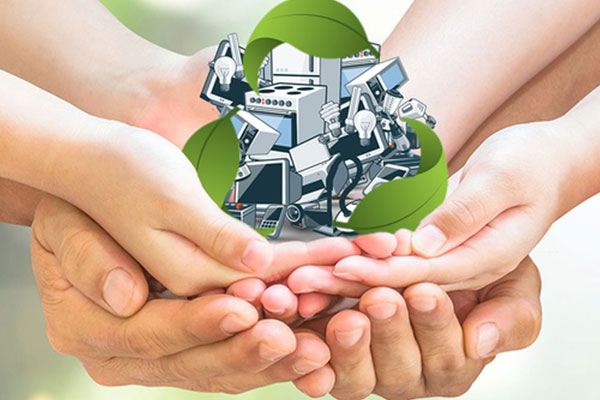E-waste management
E-waste management is the process of collecting, transporting, and recycling or disposing of e-waste safely and responsibly. E-waste management programs can help to reduce the environmental impact of e-waste, as well as create new jobs and support the recycling industry. There are several ways to set up an e-waste management program. One option is to create a central collection and recycling facility. Another option is to set up a network of small-scale collection and recycling centers. The key to a successful e-waste management program is to make it easy for people to recycle their e-waste. If we look around, we’ll find many e waste management companies, e waste management solutions.
The companies
E-waste management companies are responsible for the safe and proper disposal of electronic waste. This includes everything from computers and printers to cell phones and TVs. While it may seem like a simple task, managing e-waste is a complex and ever-changing process. There are several reasons why e-waste management is so important. First, the electronic waste contains a variety of harmful materials, including lead, mercury, and cadmium. If these materials are not properly disposed of, they can leach into the ground and contaminate water supplies. Additionally, e-waste is often shipped to developing countries where it is dismantled in unsafe conditions, exposing workers to toxic substances.
The problem of e-waste
The Problem of Electronic Waste The increase in electronic waste (e-waste) is a major environmental problem. It is estimated that only a small amount of all e-waste is recycled, while the remaining is incinerated, landfilled, or dumped in developing countries. The problem is compounded by the fact that most electronic products contain hazardous materials, such as lead, cadmium, and mercury. These toxic substances can pollute the air, water, and soil, and expose workers and residents to health risks. In addition, the growing demand for new electronic products creates a “throwaway” culture, in which outdated and broken products are simply discarded rather than repaired or recycled.
The main reasons for E-waste
There are many reasons why e-waste is such a big problem.
- We’re producing more electronic waste than ever before: As our reliance on technology grows, so does the amount of electronic waste we produce. Since the last decade, the world generated millions of metric tons of e-waste.
- We’re not recycling enough of it: Generally only a limited number is being recycled. That means that a huge amount of valuable materials are ending up in landfill sites where they’ll leach toxic chemicals into the ground.
- We’re using more hazardous materials: As technology advances, so do the materials used to make our electronics. Many of these materials are hazardous to both human health and the environment. For example, lead and mercury are commonly used in the production of electronics.
E-waste management is necessary
E-waste, or electronic waste, is one of the fastest-growing environmental problems in the world. With the rapid advancement of technology, our society has become increasingly reliant on electronic devices. From computers and cell phones to microwaves and TVs, electronic devices have become a staple in our homes and workplaces. As our dependence on electronic devices has grown, so has the amount of e-waste we generate. Each year, the world generates 50 million tons of e-waste, and that number is only expected to grow in the coming years. E-waste management is necessary to protect our environment and our health. By recycling e-waste, we can prevent it from ending up in landfills and prevent the release of harmful chemicals into the environment.

